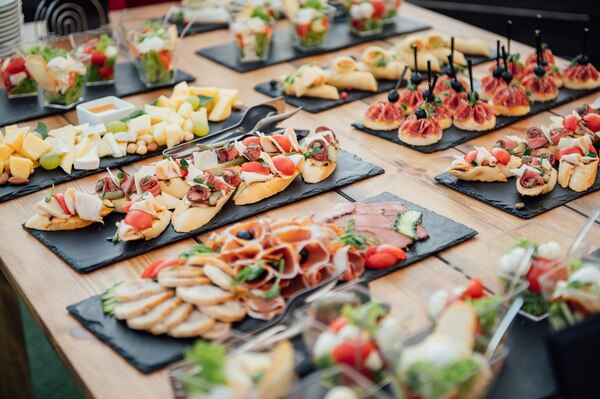Unforgettable Events with Royal Repasts
Sustainable catering has become an increasingly important focus in the United Kingdom, as more individuals and businesses recognize the need to reduce their environmental impact. As a sector that involves a significant amount of resource consumption and waste generation, the catering industry has a crucial role to play in promoting sustainability. This article explores some of the key practices that are helping to make catering more sustainable in the UK.

One of the foremost practices is the emphasis on locally sourced ingredients. By choosing local produce, caterers not only support regional farmers and reduce carbon emissions associated with long-distance transportation, but they also offer fresher and often more nutritious food. Seasonal menus driven by local products also encourage biodiversity and help maintain traditional agricultural practices.
Minimizing food waste is another critical aspect of sustainable catering. The UK has seen a rise in initiatives that promote the use of technology to monitor inventory and reduce overproduction. Collaboration with food banks and charities to redistribute surplus food has become standard practice for many caterers, ensuring that excess food benefits those in need rather than ending up in landfills. Composting initiatives are also being adopted to convert food scraps into valuable organic matter, reducing waste further.
The move towards plant-based menus is gaining momentum as well. While providing options for meat-eaters remains important, offering a variety of plant-based dishes helps reduce the environmental impact associated with animal agriculture. Many caterers are now championing the benefits of ingredients like pulses, grains, and plant proteins, creating menus that are both nutritious and ecologically sound.
Packaging presents another challenge for sustainable catering. Single-use plastics are increasingly being replaced with biodegradable or recyclable alternatives. Some companies are opting for reusable serving ware and utensils to minimize waste. Additionally, encouraging clients to bring their own containers for takeaways is a practice that some UK caterers are promoting to help reduce disposable packaging.
Energy efficiency is also playing a role in the quest for more sustainable catering. Energy audits can identify ways to reduce consumption, such as by switching to energy-efficient appliances or optimizing cooking schedules. Many catering businesses are investing in renewable energy sources, such as solar panels, to further decrease their carbon footprint.
Employee engagement and training are vital in embedding sustainability within caterer's operations. Educating staff on the importance of sustainable practices, from managing waste to efficient resource use, ensures that everyone is on board and committed to reducing environmental impact. This approach also fosters innovation, as employees often contribute valuable ideas on improving sustainability.
Finally, transparency and communication with clients regarding sustainability efforts help build trust and encourage more conscious consumer behavior. Many catering businesses promote their green credentials, which can be a powerful marketing tool to attract clients who value ethical and sustainable practices.
In conclusion, sustainable catering practices in the UK are becoming more widespread, driven by increased awareness of environmental issues and a commitment to reducing the impact of the catering industry. From sourcing local ingredients to minimizing waste and making energy-efficient choices, caterers are finding innovative ways to operate sustainably. While challenges remain, the continued growth of these practices offers hope for a more sustainable future in the catering sector and beyond.